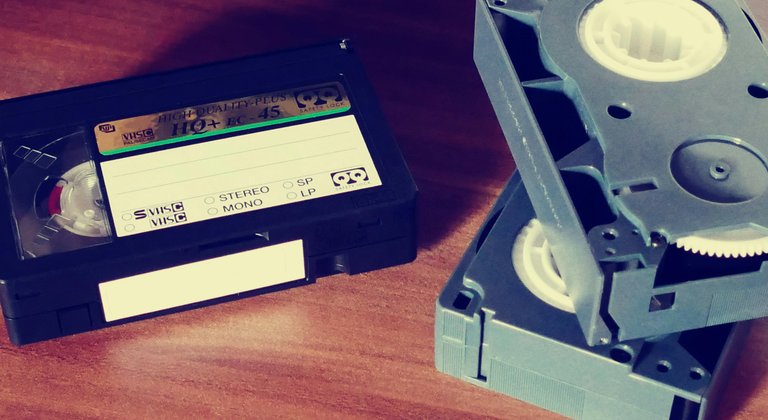
To my everlasting friends in the HiveLearners community, my best regards!
If there are crimes that could be overlooked, I don't know if I'm a good reference to analyze them. I usually end up thinking that more and more things should be criminalized. So looking at the other side is a bit difficult, but I'll make an effort.
Come with me!

I keep thinking that my colleagues should analyze it from the perspective of deaths and murders. That's not exactly what I would like to analyze, because in these cases it's difficult to say who lives and who dies.
What is the line that, once crossed, would condemn a human being to death?
Simply put, those who support the death penalty will have an easy time describing deadly behavior, and those who don't support the death penalty will have complications on this topic. How can we avoid this?
My proposal today is that this controversial point be put aside and we can dedicate ourselves to topics not related to death.
Let's start with the defense of life: medical treatment!
Yes, we're talking about medicine! We are talking about big pharmaceutical companies and healthcare monopolies. I remember an interesting situation that occurred in Brazil in the 1990s, and I will share it with you. Leaving political opportunism aside, let us consider what the then Minister of Health José Serra announced.
The Brazilian government broke the patent on AIDS-related drugs in February 2001. The patent protection law has international scope and Brazil is a signatory to the rules. At the time, the argument was that the cost required by the laboratories was abusive and prevented the distribution of the imported drug.
In this situation, what would be your position???
 A cocktail of medicines was used for AIDS / Pexel
A cocktail of medicines was used for AIDS / Pexel
I think this example is a situation where the attitude cannot be criminalized. Are there any other examples? I can't remember.
But changing the area, we have the issue of the distribution of multimedia content online. The famous streaming, which has seen its costs increase consistently. It turns out that the cost of storing and transmitting these media has been falling, which is contradictory.
Many people ended up terminating their contracts with these companies, entertainment giants, to save their household budgets. And so a problem that had been in the shadows for a long time returned: illegal distribution of media. The famous websites for downloading movies and series, and also the protocol feared by the entertainment industry: torrent.
Would it be appropriate to criminalize access to movies and series, which are properties of large studios that profit through cinemas, physical media and streaming?
 Titanic was made available on VHS / Pexel
Titanic was made available on VHS / Pexel
I think so, we should continue to protect copyright and the illegal distribution of these materials. However, once the commercial useful life of these contents has ended, they could be made available or at least reproduced without this being a crime. Imagine classic films like Titanic that new generations have never heard of, and that could be lost in their original (physical) media. The studios have already made all they could of profit from these productions. There is no justification for protecting copyright, only for free reproduction.
What do you think?


Aos meu sempre amigos da comunidade HiveLearners, minhas melhores saudações!
Se existem crimes que poderiam ser relevados, eu não sei se sou uma boa referência para analisar. Geralmente acabo por achar que mais e mais coisas deveriam ser criminalizadas. Então olhar para o lado reverso é um pouco difícil, mas vou fazer algum esforço.
Vem comigo!

Fico pensando que os colegas devem analisar do ponto de mortes e assassinatos. Não é exatamente o que eu gostaria de analisar, pois para esses casos é difícil dizer quem vive e quem morre.
Qual é a linha que, uma vez atravessada, condenaria o ser humano à morte?
De forma simples, os que apoiam pena de morte terão facilidade em descrever o comportamento mortal, e os que não apoiam pena de morte terão complicações neste tema. Como evitar?
Minha proposta hoje é que esse ponto polêmico fique de lado e possamos nos dedicar a temas não relacionados à morte.
Começamos com a defesa da vida: tratamento médico!
Sim, estamos falando de remédios! Estamos falando das grandes farmacêuticas e dos monopólios da saúde. Me lembro de uma situação interessante que ocorreu no Brasil nos anos 90, e vou compartilhar com vocês. Deixando o oportunismo político de lado, vamos considerar o que o então Ministro da Saúde José Serra anunciou.
O governo brasileiro quebrou a patente de medicamentos relacionados à AIDS em fevereiro de 2001. A lei de proteção de patentes tem abrangência internacional e o Brasil é signatário das normas, na época o argumento foi de que o custo exigido pelos laboratórios era abusivo e impedia a distribuição do medicamento importado.
Nesta situação, qual seria o seu posicionamento???
 Coquetel de remédios era usado para AIDS / Pexel
Coquetel de remédios era usado para AIDS / Pexel
Eu acho que este exemplo é uma situação onde não se pode criminalizar a atitude. Será que existem outros exemplos? Não consigo me lembrar.
Mas mudando de área, temos a questão da distribuição de conteúdo multimidia online. O famoso streaming, que tem seus custos aumentando de forma consistente. Acontece que o custo do armazenamento e da transmissão dessa mídias tem caído, o que se mostra contraditório.
Muitas pessoas acabaram por encerrar seu contratos com essas empresas, gigantes do entretenimento, para salvar seus orçamentos domésticos. E assim retornou um problema que a muito tempo estava nas sombras: distribuição ilegal de mídias. Os famosos sites para download de filmes e séries, e também o protocolo temido pela indústria do entretenimento: torrent.
Seria adequado criminalizar o acesso à filmes e séries, que são propriedades de grandes estúdios que lucram através dos cinemas, mídias físicas e streaming?
 Titanic foi disponibilizado em VHS / Pexel
Titanic foi disponibilizado em VHS / Pexel
Eu penso que sim, devemos continuar protegendo os direitos autorais e a distribuição ilegal desses materiais. Contudo, uma vez encerrada a vida útil comercial desses conteúdos, os mesmos poderiam ser disponibilizados ou ao menos suas reproduções poderiam ser realizadas sem que isso fosse crime. Imagine filmes clássicos como Titanic que as novas gerações nunca ouviram falar, e que podem se perder em suas mídias originais (físicas). Os estúdios já lucraram tudo que poderiam com essas produções. Não justifica proteger direitos de autoria, mas apenas a reprodução livre.
E você o que acha?





